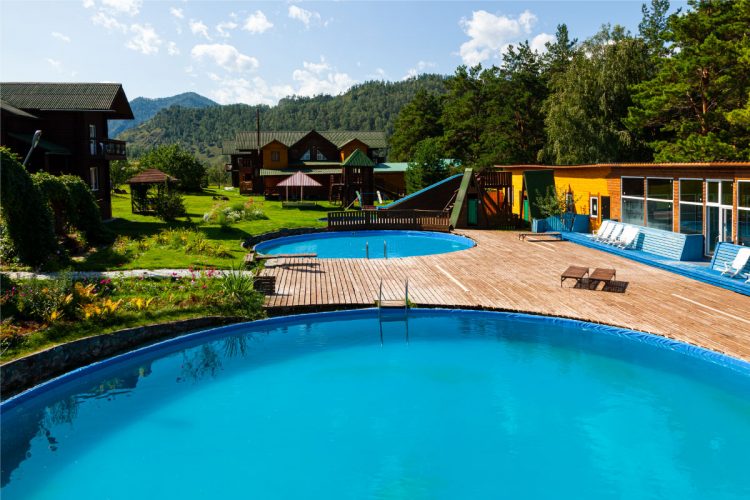A swimming pool could be a significant selling point for many renters and a possibility of more rent money for landlords. Pools are particularly popular in Southern states with warmer climates, where tenants are looking for a cool spot to relax and unwind.
However, there are a few things for landlords to consider before jumping in! Below are five things landlords need to know when renting a property with a pool.
1. Limited # of Potential Renters
While many renters see the appeal of a backyard swimming pool on a hot day, others might have a different opinion. Some renters envision a pool party for family and friends, but a family with very young children sees a pool as a potential safety risk. You’ll also need to consider the location of your rental property – a pool in a cooler climate could be regarded as a waste of space.
2. Added Liability
A pool in the backyard means added liability for the landlord. The potential for injuries or drowning can leave a landlord open to lawsuits from tenants, guests, and even unwelcome trespassers.
3. Regular Maintenance
Weekly maintenance and cleaning are just the beginning when it comes to pool maintenance. Additional regular tasks include filter cleaning and inspections, testing and maintaining chemical levels, inspecting pump operations, and the yearly functions of opening and closing the pool.
Whether performing pool maintenance yourself, leaving it to the tenant, or hiring a professional, you’ll need to clearly outline who is responsible for pool maintenance and the associated costs.
4. Increased Insurance
Having a pool will probably require additional landlord insurance coverage and higher rates. It’s essential to check with your insurance provider to make sure you have adequate liability coverage. Ensure you adhere to any safety requirements in your policy and have a good understanding of exactly how you are protected in the event of accidents or damage.
You may also want to consider setting up an LLC to protect your personal assets in case of a lawsuit.
5. Include a Pool Addendum
A pool addendum is vital to protecting yourself from liability and an essential tool in defining rules and responsibilities of pool usage. Check with your attorney to prepare a comprehensive pool addendum, but here are few essential clauses to include in your pool addendum:
- Tenants may use the pool at their own risk
- The landlord assumes no responsibility for injuries to tenants or guests of tenants
- Tenants and guest agree to use the pool in compliance with manufacturers instructions
- Tenant is responsible for proper cleaning and maintenance of pool per manufacturers instructions
- The tenant must notify the landlord immediately when repairs are needed
- The tenant must keep the gate locked at all times
You’ll also want to define financial responsibility for maintenance and repairs clearly.
Safety Measures to Reduce Pool Liability Concerns
While renting a property with a pool does come with additional liability, landlords can do a few things to reduce pool liability concerns.
- Comply with all local ordinances on residential pools
- Ensure the pool is enclosed with a fence and locked gate
- Add a pool cover with safety latches to prevent accidental falls
- Install anti-entrapment covers on drains
- Provide rescue equipment such as a life ring and first aid kit
- Consider a pool alarm to detect accidental fall-ins and unwanted visitors
- Post safety rules such as “no diving” and “use at your own risk.”
- Perform regular and comprehensive pool maintenance per manufacturer instructions
Conclusion
Renting a property with a pool can be a huge selling feature and bring additional revenue for landlords. However, a pool brings increased liability and added maintenance.
If you’re a landlord considering renting a property with a pool, it may be time to hire a property management company. An experienced property manager will have a binding swimming pool lease addendum to protect your asset and advise you on the additional liability and maintenance considerations.










Discussion about this post